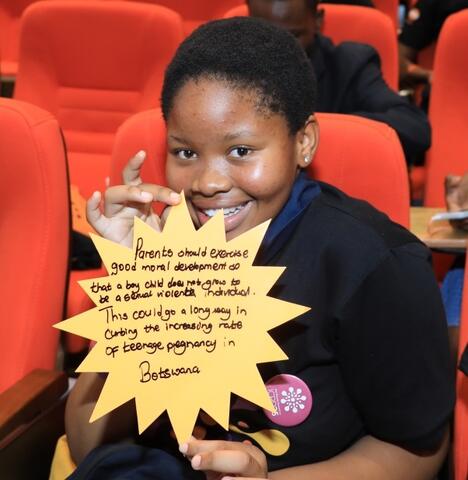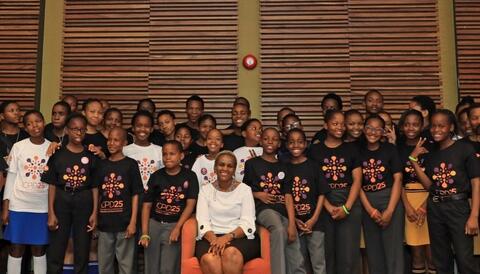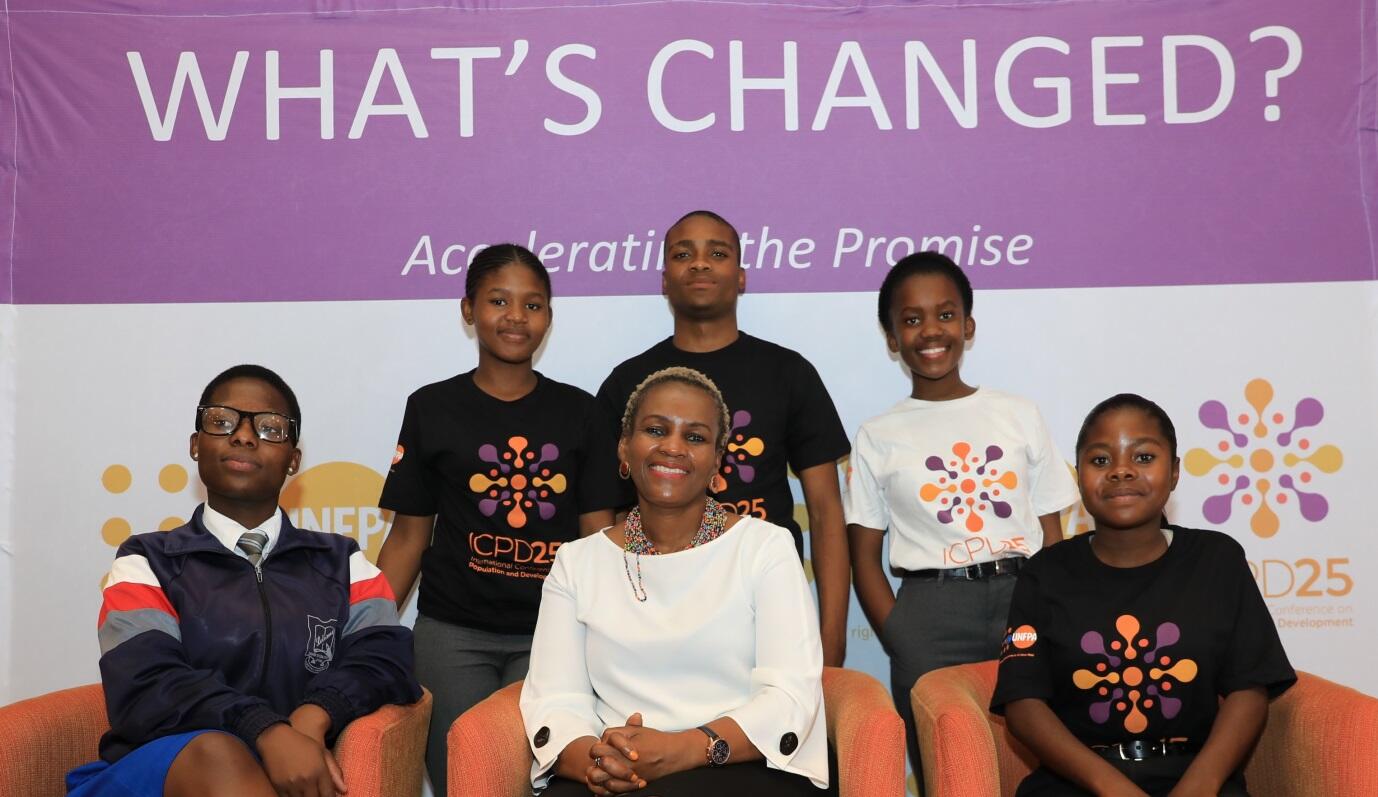Teenage pregnancy remains a great challenge in Botswana with some schools losing as many as 30 girls in a year. Twenty five years ago, Botswana together with 178 other governments committed to supporting young people prevent early and unintended pregnancies, among other things at the International Conference on Population and Development (ICPD) in Cairo, Egypt. As Botswana prepares to participate in the Nairobi Summit on ICPD25 which advocates for recommitment and accelerated action towards the fulfilment of the ICPD, UNFPA convened 80 in and out of school young people from across Botswana for a youth dialogue with the Permanent Secretary Ministry of Health and Wellness. The youth dialogue was held under the theme What’s Changed: teenage pregnancy in Botswana, and created a platform for young people to reflect on the successes and the gaps that remain in the prevention and response to teenage pregnancy.
“Have we done enough as the Ministry of Health and Wellness to prevent adolescent pregnancies? I don’t think so. We’ve done what we thought would help but the statistics show that there are still gaps,” acknowledged Ms Ruth Maphorisa, Permanent Secretary Ministry of Health and Wellness. She further expressed her appreciation for the platform to engage with both in and out of school young people on how best they can be supported to prevent early and unintended pregnancies. “I am here to learn from you, what did we do wrong? What will work for you?” she concluded.
Reflecting on why teenage pregnancy remains a challenge in Botswana, the lack of adequate information to guide young people, especially those in school, to make informed decisions and the persist negative attitudes of health care providers were voiced. Sharing her experience as a young mother, Thapelo Dialwa, 19, highlighted the consequences of the combined lack of access to information and contraceptives stating, “I was afraid of using contraceptives because I was scared of how it would affect my body. I was also too afraid to go to the clinic, so I just listened to my friends when they told me about their negative experiences with contraceptives.”

“I didn’t know about contraceptives, the different methods and the side effects until I was a young adult. Young people with hearing impairments face increased vulnerabilities therefore they need to receive sexual and reproductive health information and services tailor made to their needs.” -Kelebogile Khumoetsile, 25
“Health care providers should be trained on providing services without negative attitudes. When you go to the clinics asking for condoms, they tell you, you are not supposed to be doing such things. These are the experiences that make young people scared to seek services at clinics. ” -One Ramatlapeng – 17, Gaborone Senior Secondary School
As Botswana reflects on the gaps that remain in the fulfilment of sexual reproductive rights of young people, young people recommend the following:
- Provision of sexual and reproductive health information that would empower them to make informed decision
- Ensure access to youth friendly health services for all young people in Botswana
- Provision of support to improved parent-child communication
- Inclusion of young people in decision making processes.



